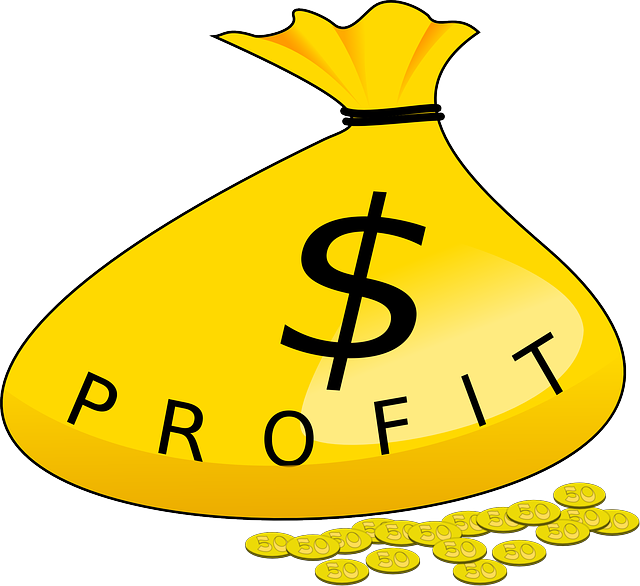Keep all events in perspective.
Recognize you have control over your reaction to any event.
Nothing matters unless it matters to you when you are 75 years old.

id was set in the arguments array for the "Sidebar 1" sidebar. Defaulting to "sidebar-1". Manually set the id to "sidebar-1" to silence this notice and keep existing sidebar content. Please see Debugging in WordPress for more information. (This message was added in version 4.2.0.) in /home/agwebs18pt/public_html/zenlawyerseattle.com/wp-includes/functions.php on line 6114September 13th, 2010
Keep all events in perspective.
Recognize you have control over your reaction to any event.
Nothing matters unless it matters to you when you are 75 years old.

September 5th, 2010
Meaning is not something you stumble across, like the answer to a riddle or a prize in a treasure hunt.
Meaning is something you build into your life. You build it out of your affections and loyalties, out of your talent and understanding, out of things you believe in, out of people you love, out of values for which you are willing to sacrifice.
The ingredients for meaning are there. You are the only one who can put them together into the pattern that will be your life. Let it be a life that has dignity and meaning.
John Gardner

August 29th, 2010
Lives based on having things are less free then lives based on doing or being. People living at the highest level realize possessions are meaningless. Only those who have no interest in gaining wealth for wealth sake can follow an enlightened path. Sloth and cowardice creep in with money we have to guard.
A man possesses of learning only so much as comes out of him in action. A person is a good person only in so far as his deeds demonstrate. For every tree is known by its fruits.
William James, The Varieties of Religious Experience (edited by PAT).

August 25th, 2010
Recently I negotiated a personal injury settlement where my minor four year old client sustained facial scars from a dog attack. The following passage on Metonymy helped illustrate how important our face is and the significance of facial scars. (A metonymy is using one entity in referring to another that is related. For example: “We need a good glove.” For we need a good fielder.
The metonymy functions actively in our culture. The tradition of portraits, in both painting and photography, is based on it. If you ask me to show you a picture of my son and I show you a picture of his face, you will be satisfied. You will consider yourself to have seen a picture of him. But if I show you a picture of his body without his face, you will consider it strange and will not be satisfied. You might even ask, “But what does he look like?” Thus the metonymy THE FACE FOR THE PERSON is not merely a matter of language. In our culture we look at a person’s face-rather then his posture or his movements-to get our basic information about what the person is like. We function in terms of metonymy when we perceive the person in terms of his face and act on those perceptions.
Lakoff & Johnson, Metaphors We Live By, (Chicago Press 1980).

August 22nd, 2010
One of the most important themes in existentialism is the fate of the individual in acquiring his or her answer to the meaning of life.
The French philosopher Jean-Paul Sarte declared our “existence precedes our essence.”
We are not born with a pre-established essence (a definition, purpose or goal) provided by some higher power or institution; rather, we must provide our own, freely chosen purpose to life. We exist first, and we then determine our meaning or essence.
Monty Python and Philosophy

August 18th, 2010
 Insurance companies dislike the personal injury lawyer when he challenges their evaluation of the case, because he has the ability to get fairness from a jury. Insurance companies dislike personal injury trial lawyers who are organized in a trial lawyers association because they have the ability to challenge insurance company legislative agendas. Thus, several years ago insurance companies launched a propaganda campaign against personal injury lawyers. I refer to the campaign as:
Insurance companies dislike the personal injury lawyer when he challenges their evaluation of the case, because he has the ability to get fairness from a jury. Insurance companies dislike personal injury trial lawyers who are organized in a trial lawyers association because they have the ability to challenge insurance company legislative agendas. Thus, several years ago insurance companies launched a propaganda campaign against personal injury lawyers. I refer to the campaign as:
The Two Big Myths
The Frivolous Lawsuit Myth. The hook for the insurance propaganda campaign against personal injury lawyers is “the frivolous lawsuit.” The poster child for the “frivolous lawsuit” is the McDonalds hot coffee case. Although the jury went into the case wondering why they needed to be involved in a coffee spill case, after hearing the evidence, they rendered a verdict of 2.7 million of which 2,5 million was for punitive damages. The judge later termed McDonalds conduct reckless, callous, and willful, when he lowered the total judgment to 640,000.
Nonetheless, insurance companies fueled and continue to fuel the perception that frivolous lawsuits are a significant problem in our society. This creates the perception that many cases where an injured plaintiff seeks compensation for her injuries are without merit. But reviewing our prior post on how the personal injury lawyer takes the case on a contingent fee, demonstrates it does not make economic sense for a personal injury lawyer to bring a meritless case. A meritless case is a losing case, and this means no fees to the lawyer.
Juries are smart. They do not compensate unless compensation is merited under the facts and law of the case. Personal injury lawyers know this and they know they better have a solid case. Nonetheless, insurance companies calculate if the public believes frivolous lawsuits are rampant then some members of a jury panel may believe it too. This means it will be more difficult for an injured plaintiff to get a decent recovery. Playing the odds it pays for insurance companies to propagate the frivolous lawsuit myth.
The Greedy Trial Lawyer Myth. Going hand and hand with the frivolous lawsuit myth is the greedy trial lawyer myth. Here insurance companies bring out their greedy trial lawyer propaganda when they are trying to defeat legislation that will hold them more accountable or when they want legislation that will place ceilings on a jury result.
In Washington we saw the greedy trial lawyer propaganda when insurance companies fought the Insurance Fair Claims Act. This act makes it illegal for an insurance company in Washington to deny insurance coverage to its own insured when the coverage should be provided. The insurance companies’ propaganda campaign argued if the law passes greedy trial lawyers will bring frivolous lawsuits to get undeserved attorney’s fees. Washington voters saw through the propaganda and passed the law.
From a trial lawyer standpoint, in a personal injury case, the lawyer is working on getting fair case value in settlement or trial with the insurance company and lawyer for defendant. The last thing he wants is to have to fight a battle on two fronts meaning also litigating against the insurance company of his client. Thus, the greedy trial lawyer propaganda makes no sense in the context of Washington’s Insurance Fair Claims Act.
Propaganda is irrational when exposed to the facts. Nonetheless, if the propaganda message is said often enough some will believe. This is playing the odds. Rest assured, insurance companies will continue to play the odds.

August 11th, 2010
 Personal injury lawsuits are a threat to insurance companies because each represents the possibility the injured person will receive the compensation a jury believes the injured person deserves which is often more than the insurance company has offered. A New York Times study on cases that do not settle and go to trial reveals 61% of the time when the plaintiff turns down a settlement and takes the case to trial the plaintiff loses. The study finds 24% of the time when the defendant turns down settlement and proceeds to trial it loses. (15% of the time both sides were right in proceeding to trial meaning plaintiff beat defendant’s offer and defendant beat plaintiff’s offer -the in between result).
Personal injury lawsuits are a threat to insurance companies because each represents the possibility the injured person will receive the compensation a jury believes the injured person deserves which is often more than the insurance company has offered. A New York Times study on cases that do not settle and go to trial reveals 61% of the time when the plaintiff turns down a settlement and takes the case to trial the plaintiff loses. The study finds 24% of the time when the defendant turns down settlement and proceeds to trial it loses. (15% of the time both sides were right in proceeding to trial meaning plaintiff beat defendant’s offer and defendant beat plaintiff’s offer -the in between result).
Interestingly when the plaintiff losses his average loss is $48,000. But when defendant refuses to settle and goes to trial the average loss is $1,100,000. This means it is the insurance company that is the party who significantly under values the case (at least 24% of the time). And it is the personal injury lawyer who calls the insurance company bluff and gets his client what a jury says is fair.
The New York Times Study presents the the obvious question: When do I have a 24% of the time lawsuit that the insurance company has undervalued. I believe the answer lies with the injured plaintiff and his or her story. As we have seen in prior posts the injured plaintiff must be true to life, realistic, totally honest, have injuries a jury can relate to, must attack the injuries, and the injuries must be too significant to overcome. Added to this must be a compelling story.
The problem the insurance company has with such a case is the problem they have with all cases. They are statistically driven. They are generally unable to appreciate a hero type injured plaintiff who has a compelling true to life realistic story. Rather, they evaluate cases systematically based on numbers and statistics. They ask what is the age and gender of the plaintiff? Where is the trial going to occur? What is the amount of the medical bills? Who are the medical providers? Do we have any type of liability or mechanism or injury argument? Who is the lawyer? They then analyze, evaluate and try the case based on their numbers and statistics.
When the case presents with an honest likable plaintiff, with legitimate permanent personal injuries, combined with a compelling story, the insurance company will likely fail to appreciate the case. This is a case that must be tried to get fairness. The personal injury lawyer is the one who can do this. When the trial is done and the injured plaintiff receives fairness it likely will be more compensation than the insurance company offered.

August 8th, 2010
KNOW WHAT YOU WANT TO DO AND DO IT
Never Act Out of Compulsion.
Never Act Without Forethought.
PUT OTHERS BEFORE YOURSELF
Never Act Out of Selfishness.
Never Act With Misgivings.
ACTION WITHOUT PRETENSE
Do Not Gussy Up Your Action.
No Surplus or Unnecessary Action.
DEMEANOR
Natural Cheerfulness.
Meditations (Bold Headings- PAT adds)

August 6th, 2010
 There are three types of lawyers as far as how they make money.
There are three types of lawyers as far as how they make money.
First, there is the hourly lawyer who charges by the hour for his legal services. Hourly lawyers include corporate lawyers, business lawyers and divorce lawyers. Hourly lawyers are paid regardless of whether they win or lose. For significant cases the hourly lawyer may ask the client to pay a retainer. Bills are sent on a monthly basis and payment is expected on a monthly basis. Any cost for the case is paid by the client at the the time the cost is incurred. The hourly lawyer is paid win or lose.
Second, there is the flat fee lawyer. This lawyer charges an agreed upon advance fee for his services. The criminal lawyer is usually a flat fee lawyer-at least for the initial fee. This is because the criminal lawyer is better able to predict in advance how much lawyer time will be involved in the case. Also, one charged with a crime is often going to be more difficult to collect fees from, and a flat advance fee eliminates this problem. Flat fee lawyers are paid regardless or whether they win or lose. Costs are paid by the client as they are incurred.
Third there is the contingent fee lawyer. The contingent fee lawyer charges no fees unless he wins the case. His fee is contingent on getting the client a recovery. If he collects nothing for the client he is paid nothing by the client. Personal injury lawyers are usually contingent fee lawyers. The amount of the contingent fee varies. Typically it is one third lawyer / two thirds client. In difficult cases such as medical malpractice cases the contingent fee is often forty per cent lawyer / sixty per cent client. Unlike the hourly and the flat fee lawyers the personal injury contingent fee lawyer may advance the cost of the case. The client gets the lawyer without paying any money until the case is over.
Why Personal Injury Cases are Generally Contingent Fee Cases
Business clients use lawyers as a cost of doing business thus payment of the lawyer is a business expense. Also cases that an hourly lawyer handles often do not involve a monetary recovery so there is no basis for a contingent fee. Nor is there a recovery in a criminal case.
A personal injury client has an injury that he or she did not expect to have to deal with. They usually do not have money set aside to pay a lawyer. Rather they have a personal injury case that has value if the personal injury lawyer is able to negotiate a settlement with the insurance company or demonstrate the case’s value to a jury, a judge, or an arbitrator.
In a personal injury case the injured client and the personal injury lawyer form a team. They work together to demonstrate case value. The injured client does what he must do to address his injuries- seek medical treatment to dig out of his injuries. The lawyer deals with the insurance companies on behalf of his client thus earning his ultimate contingent fee and freeing the client to concentrate on his injuries rather then insurance hassles.
To demonstrate case value the personal injury lawyer must be able to take the client’s case to trial. The lawyer must be able to tell his client’s story in a compelling way so a jury sees the significance of the injury. The insurance company will not pay fair value for the case unless the injured plaintiff is honest, impacted from his injury, and can demonstrate his story with and through his lawyer. Even then then fair value may only be able to be obtained from a jury.

August 3rd, 2010
 In the next few posts we discuss how personal injury law and insurance companies relate. We begin by discussing insurance companies.
In the next few posts we discuss how personal injury law and insurance companies relate. We begin by discussing insurance companies.
How an Insurance Companies Makes Money
An insurance company makes money two ways. First they collect insurance premiums from their insurance customers in exchange for insuring their customers from agreed upon risks-the risks set forth in the insurance policy. Insurance companies price their premiums based on their actuarial projection of the likelihood of having to pay for an insured event. In an ideal insurance world the amount of total premiums exceeds the total amount of pay out on insured events and claims overhead. This means the insurance company makes money from the sale of insurance.
The second way an insurance company makes money is from the investment of insurance premiums that are held in reserve until claims must be paid. This is often called “the float.” Since premiums are collected and claims have yet to occur an insurance company is allowed to invest a portion of its premiums. This is done in the stock market and also in the sale of insurance products like annuities. If the insurance company is making money from collecting more then it pays that profit is also invested.
Personal Injury Claims
Understanding how insurance companies make money is important to understanding how insurance companies handle personal injury claims. In economic good times when the stock market is doing well insurance companies do well on their investment of premiums. In fact they make most of their money in economic good times. In economic good times they tend to charge less for insurance premiums because they can use the increase in collected premiums to make money at a greater rate then they ever make from the difference between collected premiums and pay outs.
Economic hard times change insurance company dynamics. Since insurance companies are not making much on their investments they must concentrate on the sale of insurance side of the profit equation. This means they tend to charge more for insurance, and they become more difficult as far as paying claims. In tough economic times they deny claims at a higher rate, they offer less to settle claims, and they delay in paying claims.
All of these realities translate to the need for a personal injury lawyer when dealing with an insurance company-particularly in economic hard times.
